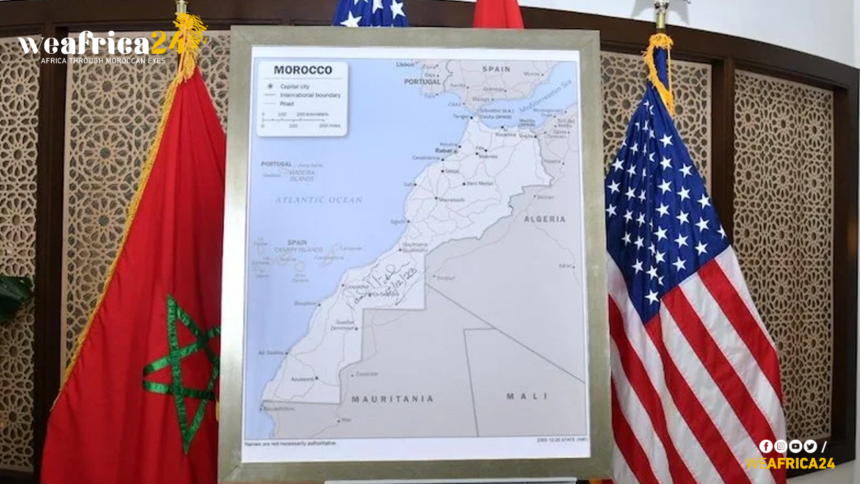In a policy paper released by the Washington Institute for Near East Policy, attention was drawn to the challenges the United States faces in managing its relations with the countries of the Greater Maghreb, especially Morocco and Algeria. The paper stressed the need for the Biden administration to handle Algeria cautiously, noting that “maintaining UN-led negotiations on the Sahara and protecting Rabat’s ties with Washington and Tel Aviv are of paramount importance to U.S. regional interests.”
The source indicated that “America is required to continue supporting the UN-led process to resolve the Western Sahara conflict and also insist on recognizing Moroccan sovereignty over the region.” It pointed out that “this balanced approach can contribute to active engagement with Algeria without undermining Morocco’s relations with Israel, which serve broader U.S. strategic interests in the region,” adding that “Washington must seize the opportunity to cautiously engage with Algeria to ease tensions with Rabat and prevent further military escalation in the Sahara.”
The same policy paper, titled “Balancing U.S. Relations in North Africa Without Undermining Abraham Accords,” noted that “American officials must remember that diplomatic relations between Morocco and Israel can contribute to humanitarian efforts and post-war reconstruction in Gaza.” However, it emphasized that “the absence of a clear vision for the Israeli-Palestinian peace process will pose a challenge for Rabat’s commitment to U.S.-led initiatives, especially if they impose significant domestic costs or affect its reputation.”
Reviewing the U.S. stance on the Western Sahara issue, the document stated that “Washington has maintained its recognition of Moroccan sovereignty over its Sahara, actively engaging with Algeria, as evidenced by the visit of the U.S. Deputy Assistant Secretary of State to the region last September and his meeting with senior Algerian officials and Polisario leader.” It considered that “Moroccan officials may interpret these initiatives towards Algeria as departing from U.S. commitments under the 2020 tripartite agreement, potentially undermining the kingdom’s bilateral relations with Washington and Tel Aviv.”
The paper also noted that “Washington may harm its relations with Morocco at a time when the latter seems primarily focused on diversifying its foreign partners amid increasing regional doubts about the reliability of Washington, as evidenced by its reliance on growing Chinese and Russian influence in Africa.” It highlighted announcements by Chinese companies of new investments in the kingdom, in addition to the agreement with Russia on peaceful nuclear cooperation.
The Washington Institute underscored the security and strategic partnerships linking Moscow and Beijing to Algeria, stating in this context that “U.S. efforts to engage with Algeria do not guarantee it will distance itself from Moscow and Beijing or make concessions towards de-escalation with Morocco.” It pointed out that these efforts “may ultimately cast a shadow over Morocco’s relations with the United States and Israel at a time when the region is experiencing a regional crisis.”







